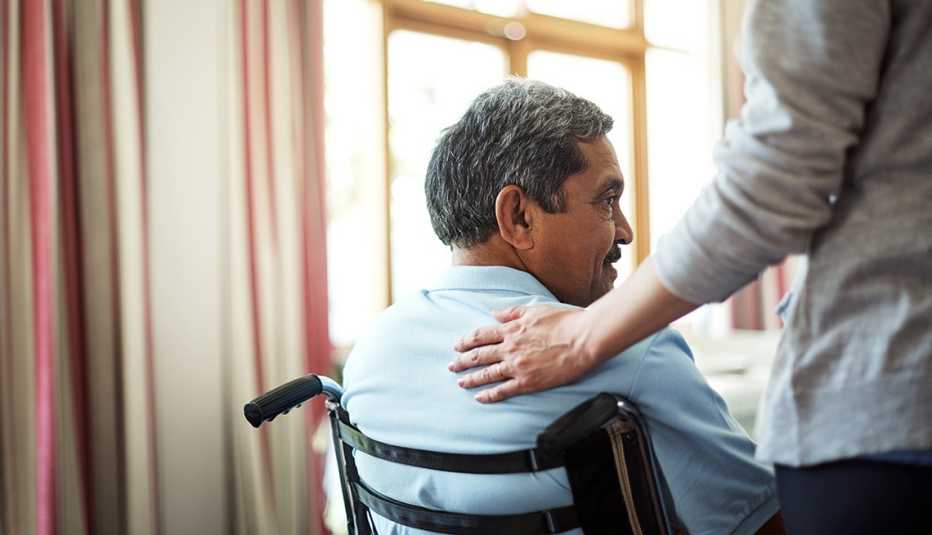Staying Fit


You served your country years ago, or maybe your spouse did. Now, you’re retired, your health is declining, and you struggle with everyday things, like bathing and dressing. You need help, but you think you can’t afford it, and it never occurs to you to turn to the VA.
If that sounds familiar, you have plenty of company. Large numbers of veterans and their survivors who need caregiving help have no idea they might qualify for thousands of dollars a year through a program called Aid and Attendance (A&A), experts say.


AARP Membership— $12 for your first year when you sign up for Automatic Renewal
Get instant access to members-only products and hundreds of discounts, a free second membership, and a subscription to AARP the Magazine.
“It’s a benefit that many, many elderly vets are eligible for and have no idea,’’ says Alene Tarter, director of benefits and assistance for the Florida Department of Veterans’ Affairs. “I’m retired military, and I never heard of it until I worked for the state.’’
The government estimates that hundreds of thousands of people whose incomes are low enough to qualify for VA pensions haven’t applied, and many of them could be eligible for extra caregiving-related payments through A&A.
“It’s an entitlement that can improve their lives, and they’re not taking advantage of it. That’s disturbing,’’ says Kevin Friel, deputy director of pension and fiduciary service at the VA.
To qualify for the program, veterans in most cases must be at least 65, have had at least one day of service during wartime, and have at least 90 days of active service before 1980 or at least 24 months after Sept. 7, 1980. They also must meet certain income requirements, and, under new rules adopted this month, their net worth cannot exceed $123,600, not counting their primary residence.
Friel said many older veterans who served during wartime and their survivors could qualify for pensions that are based on financial need, even if they don’t think of themselves as poor, because of the way the government calculates need. The formula allows people to deduct medical expenses from their income, which means that as people grow older and their medical needs rise , they often can qualify for pensions, even if they couldn’t when they were younger.
A&A allows people to get an increased monthly pension if they can prove they need help from another person for everyday tasks such as bathing, dressing, feeding and going to the bathroom. People who are bedridden also can qualify for extra payments. The money can be used to pay for care at home or in nursing homes and other facilities.
A single veteran can receive up to about $1,800 a month and a veteran with a spouse or dependent up to about $2,200. A surviving spouse can get a monthly payment of up to about $1,200.
Carol Howell, the author of a book on caregiving for people with dementia, says the program has been crucial for her 79-year-old mother, who has advanced dementia and recently moved into a skilled nursing facility in South Carolina. In seeking the benefit for her mother, Howell was helped by the National Association of Veterans & Families.


































































More on Home and Family
How Veterans and Their Families Can Find Benefits
There is help to make it through the maze of programs8 Benefits Veterans’ Survivors Should Know
From health care to education, help is available to military families